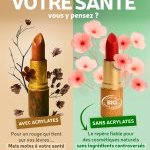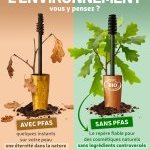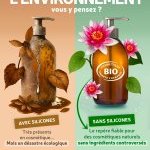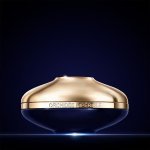On September 25th, the Cosmébio organization, together with certifying entities like Ecocert, Bureau Veritas, and Cosmécert, revealed a significant alteration to the Cosmos norm, underscoring their mutual dedication to tackling the still-widespread issue of deceptive marketing within the beauty and skincare sector.
Elevating the visibility of organic elements
The pivotal modification introduced in version 4.2 of the Cosmos standard involves excluding water and minerals—components inherently unable to secure organic certification — from the calculation. This adjustment aims to offer a more precise depiction of the percentage of organically sourced components and aids in emphasizing the most dedicated formulations.
Consider, as an illustration, a lotion comprised of 60% water, 5% minerals, and 20% organically grown ingredients. In the past, its label conveyed a 20% organic composition. Based on the revised calculation—which presently centers solely on the 35% of “certifiable” components—the identical lotion will showcase 57% organic ingredients, delivering a more truthful portrayal of its makeup.
Alert regarding deceptive marketing
Nicolas Bertrand, General Delegate of Cosmébio, speaking on behalf of both the organization and the three certification firms, restated their consolidated position: to denounce and address deceptive marketing tactics, while safeguarding consumers, public well-being, and the environment.
“Deceptive marketing is no longer just a sales tactic; it poses a substantial hazard to health and the environment. Asserting that a product is ‘natural’ or ‘organic’ lacking substantiation or a stringent framework generates uncertainty and erodes consumer trust. Consequently, we advocate for firmer regulations, reinforced by legislation, and remind consumers that certification remains the single pathway to furnishing them with a reliable assurance,” stated Nicolas Bertrand.
On that identical day, a fresh digital communication initiative was introduced, designed to heighten public awareness regarding controversial constituents present in select cosmetic goods.
This isn’t the inaugural instance of the association conceiving such an endeavor. In 2023, it zeroed in on octocrylene, BHT, dimethicone, PTFE, and resorcinol, followed by PEG and EDTA in 2024. This year’s effort concentrates on acrylates, silicones, and PFAS through potent and striking visuals. Through this novel awareness-raising effort, Cosmébio seeks to reaffirm its function as a sentinel and reiterate its plea for amplified openness.
Portfolio









